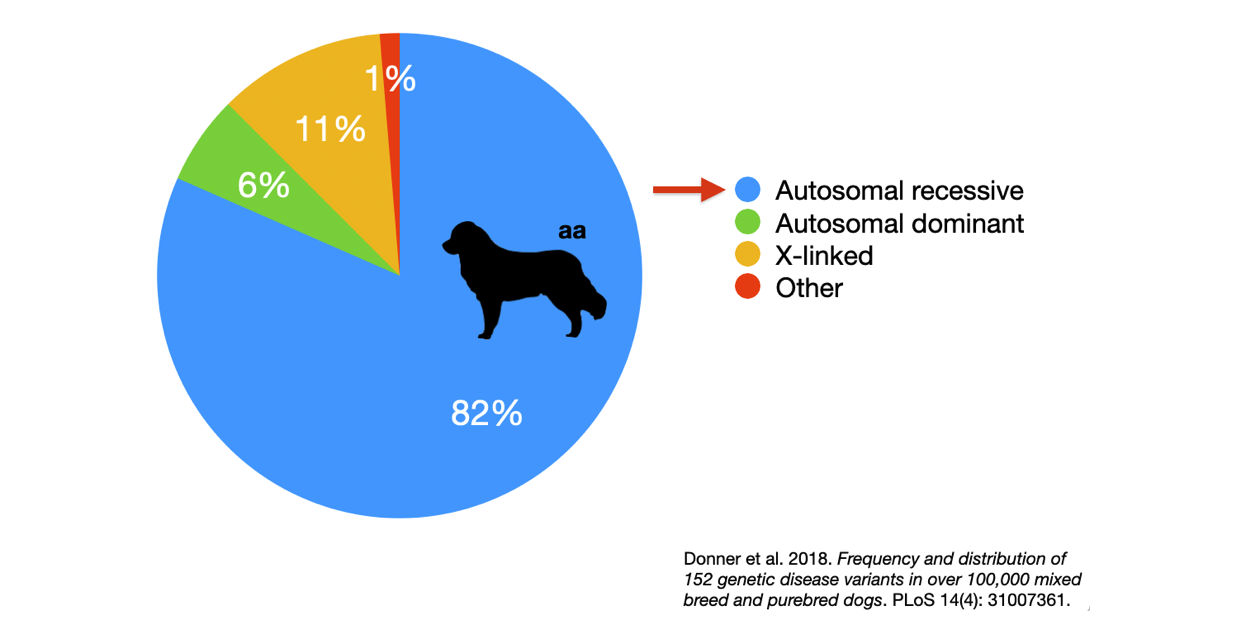The people that say this reveal their poor understanding some basic principles of genetics that should be elementary level stuff for every dog breeder. But apparently not. This statement is false, and here's why.
Of course, not all mutations are recessive, but problems caused by dominant genes are easily managed by removing the carrier from the breeding population. The action of a gene can also be affected by the mix of genes in the genome of that particular dog (i.e., polygenic). How these genes affect the health of a dog can be complex and unpredictable, but in dogs polygenic disorders are far outnumbered by the problems caused by simple recessives.
So, let's just consider the case of the simple recessive mutation.
| Most breeds do not share mutations (Donner et al 2018). That is, mutations tend to be breed specific either due to founder effect or because they occurred after a breed split away from the ancestral dogs from which it was developed. A dog of breed A might be homozygous and affected by a recessive mutation, but when crossed to breed B will likely produce offspring that are heterozygous. Because of this, the offspring will not be affected by the disease. In fact, the puppies produced by a cross breeding should be expected to be unaffected by any of the disorders of either parent that are caused by recessive mutations. This of course assumes that the two breeds being crossed are not so closely related that they could share some mutations because of a common origin. |
The offspring of a cross breeding will produce offspring that will carry some of those mutations. If those dogs do lots of breeding, they will produce many copies of those mutations packaged in puppies that will enter the breeding population. The way to keep those mutations from being a problem, is to not make hundreds of copies and distribute them throughout the population. Keep them few and rare by nixing those popular sires.
For that matter, tackle the folks that claim that mixed breed dogs are not - and should not be - healthier than purebreds. If we get rid of all the problems caused by recessive mutations, then maybe. But in fact, from the simple facts of genetics, mixed breed dogs are less likely to suffer from disorders caused by recessive mutations than purebreds. Believe in genetics; the world will make so much more sense.
Donner J and others. 2018. Frequency and distribution of 152 disease variants in over 100,000 mixed breed and purebred dogs. PLoS Genetics 14(4): e1007361. DOI: 10.1371/journal.pgen.1007361
ICB's online courses
***************************************
Visit our Facebook Groups
ICB Institute of Canine Biology
...the latest canine news and research
ICB Breeding for the Future
...the science of animal breeding



